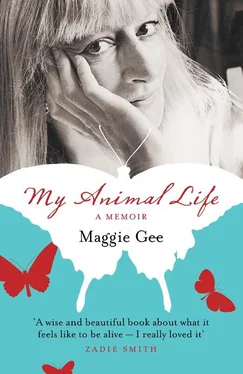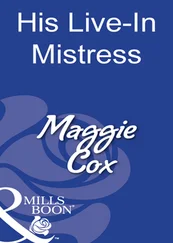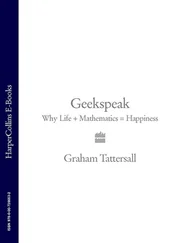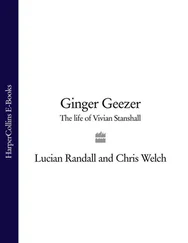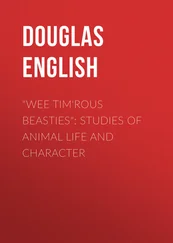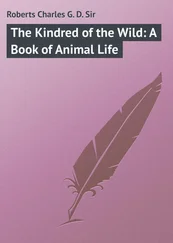
Rosa, solid and warm in my hands
The money mattered, but the book mattered more. I was still a writer, but I had a daughter. I was still a writer, and I had a daughter . She was plump and healthy, with a high round forehead, wide-spaced blue eyes that grew green later, a cheery, chattering way with people and a desire for perpetual motion. Rosa: Rosa. A new person. We fell in love with her as soon as we saw her. The flat was held together by a sunny corridor that ran from our bedroom to the high front room. As Nick or I carried Rosa up and down it, we kissed her big scantily-curled head so often I am surprised there was any hair left.
We pass it still, that first flat where we lived for the first five years of Rosa’s life. I feel versions of us must still live there, somehow, ghostly avatars of happiness. As soon as we started to want her, she came, between two hot wing-beats of time, in Portugal, and then she was with us, and we were three. Shadows came later to teach us better, but we knew even then her first year was miraculous, that we had never been happier, that we could never be happier, as we held her, solid and warm, in our hands. This was the space of bodily bliss.
Above my head, though, there was still the high wire, glittering in its own cold light. I left Rosa with Daphne, and hurried to climb it, two hours left, then an hour and a half, and in the last half-hour, the world fell away, I forgot to worry, I became the writing, I was on my own, and I danced along it, I cut away the dullness, I found my nerve.
Rosa is young
and we grow older
The poet EJ Scovell, who I knew as Joy, and her husband CS Elton, who was Charles to me, author of The Patterns of Animal Behaviour and the founder of British ecology, became friends of mine in my very early twenties when their niece Liza married my elder brother John. (And this was the alchemy that occurred when the State invested in its working classes by giving bright children a top-flight education: untapped talent was brought up into the light. My brother and I were translated to Oxford, and married into the educated middle classes.) Joy and Charles were nearly half a century older than me, but it was so interesting, their tall Park Town house covered in red and green creeper; the books, the ideas; the endless murmur of conversation about voles or daisies, odes and dactyls. Charles influenced my thinking about the web of life; he helped me to see human beings as one species in a vast and complex net of animals and plants, and I saw, in his relationship with Joy, that art could marry science, that both were forms of restless curiosity, feeding the same attempt to understand the world. They remained two of my dearest friends until they died, in their nineties, near the end of the century. How kind they were to me when I was young and raw.
I learned that the old could remain youthful. They had brought up two children, Rob and Katy, and had a vivid love for their grandchildren, some of whom lived on Montserrat, and were half-Caribbean. All children touched Joy’s imagination as a poet. Some of her best and most anthologised poems are about children and the passage of time (she is also the poet of old age, one of the best in our language). In a poem called ‘At the school gate’, she muses on the young parents she sees picking up their children at the end of the day. They are:
Still beautiful, but not in that first way — their used and hardy beauty is in fruit today .
As the mother of a baby, you can’t be a child; nor can you and your husband be children together (though that comes back later, when the babies are older and need less to be done for them just to stay alive, so you can sometimes, briefly, all be children together). But at first, parents are servants. There are a lot of dull things to be done. Large plastic objects must be brought into the house. You can’t travel light, walking swiftly through the streets enjoying the feel of air on your face. You are struggling with the child, pushchair, nappies, bottles, toys, changing-mat. You are bulkier and slower; you start to look older. You think less about your looks, and become ‘used and hardy’.
I thought about beauty in the world outside, even more than before, perhaps, as I tried to show it to Rosa, her wide pale eyes looking up at me, and beyond me, the clouds (I didn’t realise she could see it for herself) — but after the beginning, when I was relieved to be slim again after pregnancy, I had less time and energy than ever in my life to think about my own appearance. The photos of me at the time attest it. I didn’t care, I knew Nick loved me. But I aged five years, perhaps, in two. And when Rosa was three, illness struck.
First-generation RSI or Repetitive Strain Injury, the occupational hazard that came upon the users, or over-users, of the first basic computers. Two giant boxes had arrived at Christmas: an Amstrad computer, a digital printer, presents from Nick to help me write. Perched on a rackety upright chair at a too-high desk, typing on tip-toe in our bedroom, ignoring the strange creeping pins and needles in my arms and legs and the gathering heaviness in my neck and shoulders, I had worked like a madwoman, 4,000 words a day, 7,000 words a day, 10,000 words a day , on the final day I wrote 10,000 words, for the new machine encouraged madness, my hands burning eagerly over the keyboard, eyes dry, cheeks hot, powering on to the end of my novel, Where are the Snows . The day after I finished, my limbs started swelling, my joints seized up. In a terrifying whole-body manifestation of distress I could no longer write, nor brush my teeth, nor walk. I thought I was dying, but I was diagnosed with a strange new syndrome that was puzzling doctors: RSI. No one knew what to do. I tried doctors, NHS and private, physiotherapists, acupuncturists. All that helped was rest, as one doctor had told me, but it went against my nature to accept it. Every nerve in my body felt angrily electric, so acupuncture was a torment. Physiotherapy at least gave me something I could do for myself; a little group of exercises, but oh, so very little; the movements I could make without pain were so few. Would it ever get better? No one knew. I had done this to myself, by neglecting my body, by forgetting I had an animal life, by thinking I could chain myself to a machine. The forgotten body had grown hurt and angry. Now I would have to be afraid of it. I was slow, and careful, and hoped it would forgive me.
The worst of it passed within six months, but I could not run or even walk as I used to, and my outline softened, and my head was too heavy, bending forward to avoid pain. For a year or so, I couldn’t even carry a handbag; it hurt us both that I could not carry Rosa; my muscles must have weakened, and I suppose my bones.
I did not mind too much, because I had my family, my little unit that had to survive, and much more to think about than my body. And there was so much happiness when Rosa was young.
I can’t write a ‘miserable mum memoir’. Yes, I was tired, and I got things wrong, and sometimes I must have hated her because she would not go to sleep — you can’t negotiate, or bribe, or order; she was herself, intransigent, and I ran against the rock face in myself; our needs were opposed ; and hers had to win, but still, it made me furious. Or I hated myself for leaving her with the child-minder so I could work; and sometimes I got behind with the writing even though I knew I had short-changed my daughter, and felt ‘I’m no good as a mother, and no good as a writer.’ Once when Rosa was two and a bit I picked her up from her nursery late, and when she got home she cried with rage and went under the table in her room, stopped crying but would not come out, and said, ‘I don’t want you to work any more, Mummy. Don’t work any more.’ The words that I most dreaded to hear, but the next day she seemed to have forgotten it, she went to nursery school, I was not late.
Читать дальше
